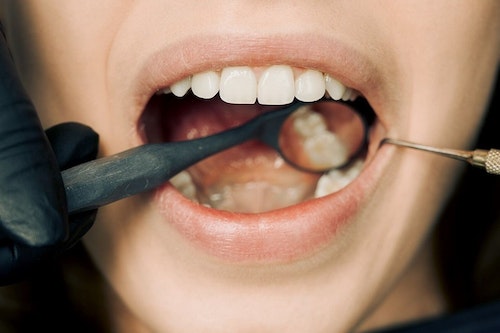For many people, the thought of visiting the dentist can trigger feelings of anxiety and fear. Dental fear is a common issue that affects individuals of all ages, and it can lead to avoidance of necessary dental care, which can have serious consequences for oral health. However, by understanding the root causes of dental fear and adopting effective strategies, it is possible to overcome anxiety and have stress-free dental visits. Dental fear can stem from various sources, including past negative experiences, fear of pain, a sense of loss of control, or even a fear of the unknown. These feelings can be overwhelming, leading to avoidance of dental check-ups and treatments, which can exacerbate oral health problems over time. Recognizing and acknowledging these fears is the first step towards overcoming them.
One effective strategy for taming dental fear is open communication with the dentist and dental staff. By expressing your anxieties and concerns, the dental team can better understand your needs and tailor their approach to make you feel more comfortable. Many dentists are trained to handle patients with dental fear and can offer a range of techniques to help you relax during your visit. A common fear associated with dental visits is the fear of pain. However, advancements in dental technology and techniques have significantly reduced the pain and discomfort associated with dental procedures. Local anesthetics are now used to numb the area being treated, ensuring a pain-free experience. Moreover, dentists can provide sedation options for more anxious patients, ranging from mild sedation to general anesthesia for more complex procedures.
Another technique to overcome dental fear is desensitization. Gradually exposing oneself to dental settings and procedures can help diminish anxiety over time. This can begin with simple visits to the dental office without any treatment, allowing the individual to get familiar with the surroundings and the dental team. As comfort levels increase, minor treatments can be introduced before progressing to more involved procedures. Distraction techniques can also be highly effective in reducing dental anxiety. Listening to music, watching TV shows or movies, or practicing deep breathing exercises during the appointment can divert your attention away from the dental procedure and create a more relaxed environment. Some dental offices even offer virtual reality headsets that can transport patients to a different world during treatment, minimizing their focus on the procedure itself.
For severe cases of dental fear, cognitive-behavioral therapy (CBT) can be a valuable option. CBT is a psychological treatment that helps individuals change negative thought patterns and develop coping mechanisms to manage their anxiety. This approach has proven successful in helping people with dental fear reframe their thoughts about dental visits and develop more positive associations with the experience. Support from friends and family can play a crucial role in overcoming dental fear. Having a loved one accompany you to the dental appointment can provide comfort and reassurance. Moreover, sharing experiences and hearing positive dental stories from friends or family members can help normalize the dental visit experience, making it seem less intimidating.
In conclusion, dental fear is a common challenge that many individuals face, but it should not be a barrier to receiving essential oral care. By understanding the root causes of dental fear and employing various strategies, such as open communication with the dental team, desensitization, distraction techniques, and psychological therapies like CBT, individuals can overcome their anxieties and achieve stress-free dental visits. Regular dental check-ups and treatments are vital for maintaining good oral health, and conquering dental fear empowers individuals to take control of their oral well-being and enjoy a healthy smile for life.
